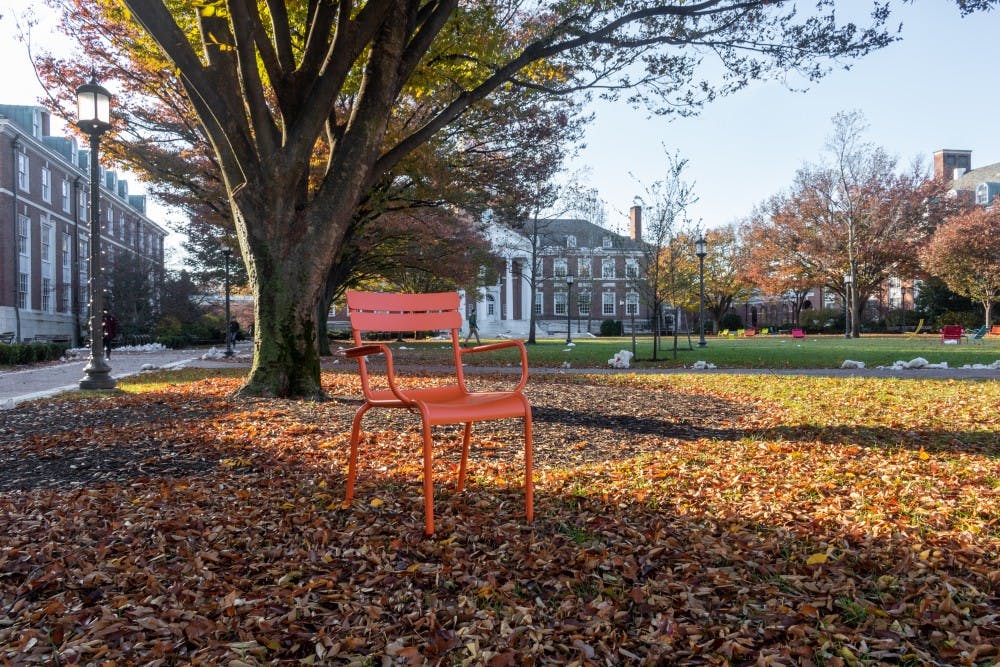The Student Government Association (SGA) held their fourth meeting of the semester this Tuesday in Charles Commons. Members unanimously passed a bill to clarify guidelines for SGA’s funding board, the Student Activities Commission (SAC), and also discussed a bill intended to determine reproductive-health needs on campus.
SGA unanimously passed the SAC Act, which proposed amending SGA bylaws in order to better define which groups are eligible for SAC funding.
Senior Class Senator Chase McAdams, who introduced the bill, is chair of SGA’s Committee on Student Organizations (CSO), which handles recognition and functioning of student groups. He explained that the bill allows for groups under both SGA and an academic department or administrative office to receive monthly grants but not annual funding from SAC. He shared his reasons for introducing the bill in an interview with The News-Letter.
“It gives incentive to non-SGA groups to come under SGA,” he said.
An earlier version of the bill failed to pass last week after receiving only 59 percent of votes in favor, just short of the required two-thirds majority. When asked about the differences between the two versions of the bill, McAdams explained that instead of 12 voting commissioners, SAC would be comprised of eight.
Executive Treasurer and SAC Chair Eric Armstrong, a sophomore, stated that SAC controls 95 percent of the money SGA gives to student groups, which amounts to around $300,000.
In addition, Senior Class Senator Chanel Lee introduced the Reproductive Health Needs and Emergency Contraception Survey Act. The bill’s purpose was to disseminate a survey that would collect information on students’ awareness of available contraceptives on campus, along with their attitudes toward reproductive and sexual health services offered by HelWell.
The bill was also meant to determine barriers to accessing regular and emergency contraceptives.
Lee elaborated on the bill’s long-term goals.
“I find it very illogical how we provide condoms for free on campus, but we are not keeping in mind the real-life consequences of having sex,” she said. “By using the results of the survey, I hope to push HelWell to provide emergency contraceptives for free to undergraduate students.”
Senior Class President Pavan Patel voiced concerns about double-counting and confidentiality.
“If you send out the survey how do you know someone won’t fill out the survey again? It doesn’t ask for any identifiable information,” he said. “If you do ask for identifiable information, how would you ensure that confidentiality is maintained?”
Junior Class Senator William Cho said that he didn’t see anything in the bill that would gauge students’ awareness of the survey’s confidentiality.
Student Leadership and Involvement (SLI) Director Calvin Smith, Jr., SGA’s advisor, suggested that Lee look into Campus Labs, a survey tool to which Hopkins Groups is attached. Further, Executive Secretary Pritika Parmar, a sophomore, suggested that Lee design an incentive for people to fill out the survey. Ultimately, SGA decided to table the bill until next meeting.
Next, Sophomore Class President Nathan Mudrak presented the One SGA Bill, which passed with a two-thirds majority. The bill sought to promote communication within the Senate and among other SGA branches, such as SAC, the Policy Research and Design Commission (PRDC), the Black Caucus and the Committee on Student Elections (CSE). Armstrong commended the bill.
“Groups like the PRDC and SAC have felt so separate from the Senate in the past. It’s a really great way to integrate them into meetings. There will be an allocated time for a representative from each of these groups to come speak about their updates,” he said.
For the future, Mudrak is working on a bill to promote transparency surrounding SGA’s meetings and actions.
Next, Patel proposed and passed the FIJI Push Funding Bill. The Push, which will be held this Saturday, is a philanthropic event put on yearly by Phi Gamma Delta Fraternity (FIJI) to raise funds for the United Services Organization (USO). The bill allocated $200 to help cover the cost of T-shirts.
Zach Epstein, a senior in FIJI, shared his goals for the event.
“The USO provides services to our service men and women. They send care packages to soldiers overseas, they provide programming to their families back home,” he said. “We’re looking to raise between $5,000 and $10,000.”
In addition, SGA confirmed two new members to the CSE.
At a town hall summit on Wednesday, Oct. 16, SGA plans to present a method for student leaders to keep better track of their finances.





